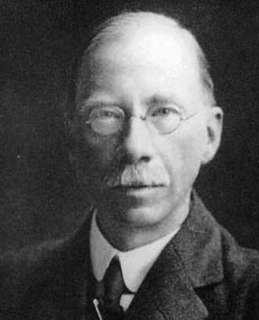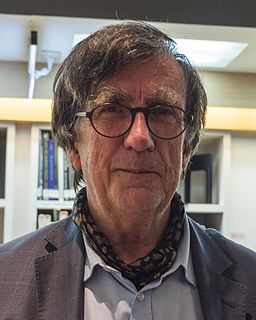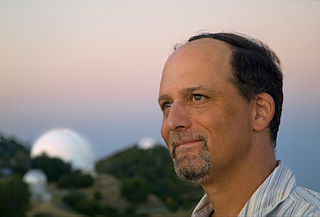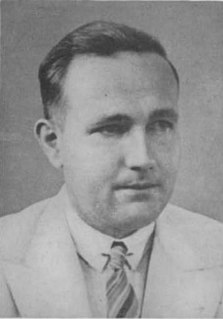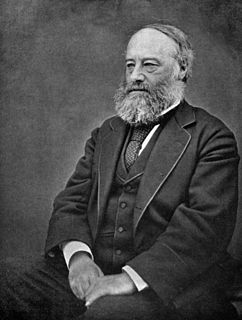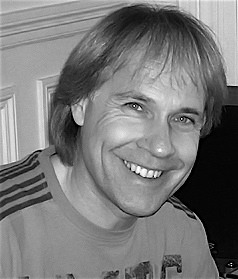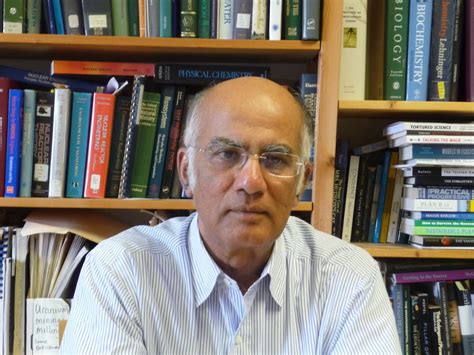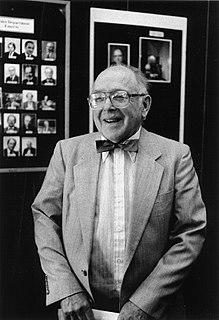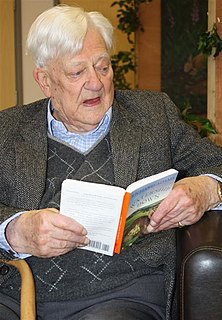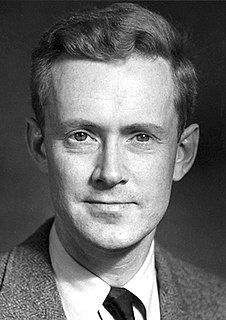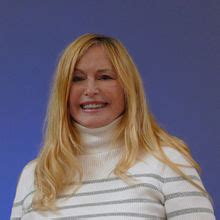Top 705 Experiments Quotes & Sayings - Page 12
Explore popular Experiments quotes.
Last updated on April 16, 2025.
Some months ago we discovered that certain light elements emit positrons under the action of alpha particles. Our latest experiments have shown a very striking fact: when an aluminium foil is irradiated on a polonium preparation [alpha ray emitter], the emission of positrons does not cease immediately when the active preparation is removed: the foil remains radioactive and the emission of radiation decays exponentially as for an ordinary radio-element. We observed the same phenomenon with boron and magnesium.
The investigation of causal relations between economic phenomena presents many problems of peculiar difficulty, and offers many opportunities for fallacious conclusions. Since the statistician can seldom or never make experiments for himself, he has to accept the data of daily experience, and discuss as best he can the relations of a whole group of changes; he cannot, like the physicist, narrow down the issue to the effect of one variation at a time. The problems of statistics are in this sense far more complex than the problems of physics.
Is it not evident, in these last hundred years (when the Study of Philosophy has been the business of all the Virtuosi in Christendome) that almost a new Nature has been revealed to us? that more errours of the School have been detected, more useful Experiments in Philosophy have been made, more Noble Secrets in Opticks, Medicine, Anatomy, Astronomy, discover'd, than in all those credulous and doting Ages from Aristotle to us? So true it is that nothing spreads more fast than Science, when rightly and generally cultivated.
Science does not enter a chaotic society to put order into it anymore, to simplify its composition, and to put an end to controversies. It does enter it, but to add new uncertain ingredients... to all the other ingredients that make up the collective experiments. When scientists add their findings to the mix, they do not put an end to politics; they add new ingredients to the collective process.
I'm at a funny crossroads, personally. I really want to turn my attention away from planet-hunting towards Search for Extra-Terrestrial Intelligence (SETI) program at UC-Berkeley. I'm in this lucky position that my career has been more successful than I could have ever imagined. It's time for me to roll the dice, try something that's a long shot. Younger scientists can't put their eggs in that basket, because if you spend your time on SETI, your chances of success are low. But I have the luxury. There are some experiments we can do to hunt for the great galactic Internet.
We know – it has been measured in many experiments – that children with strong impulse control grow to be better adjusted, more dependable, achieve higher grades in school and college and have more success in their careers than others. Success depends on the ability to delay gratification, which is precisely what a consumerist culture undermines. At every stage, the emphasis is on the instant gratification of instinct. In the words of the pop group Queen, “I want it all and I want it now.” A whole culture is being infantilised.
In certain circumstances where he experiments in new types of conduct by cooperating with his equals, the child is already an adult. There is an adult in every child and a child in every adult. ... There exist in the child certain attitudes and beliefs which intellectual development will more and more tend to eliminate: there are others which will acquire more and more importance. The later are not derived from the former but are partly antagonistic to them.
When you look at any experimental work not directly related to economics, but trying to test rational behavior in other ways, experiments have conspicuously failed to show rational behavior. Macro evidence certainly suggests deviations from rationality, but I don't want to say the rationality hypothesis is completely wrong. If you have any introspective idea or experimental idea about people's behavior, it seems to be incompatible with the really full scale rational expectations.
Habits start out as off-hand remarks, magazine advertisements, friendly hints, experiments - like flimsy cobwebs with little substance. They grow with practice, layer by layer - thought on thought - fused with imagination and emotion until they become like steel cables - unbreakable. Habits are attitudes which grow from cobwebs into cables that control your everyday life. Self-discipline alone can make or break a habit. Self discipline alone can effect a permanent change in your self image and in you. Self-discipline achieves goals. Self discipline is not 'doing without,' it is 'doing within.'
It is often said that experiments should be made without preconceived ideas. That is impossible. Not only would it make every experiment fruitless, but even if we wished to do so, it could not be done. Every man has his own conception of the world, and this he cannot so easily lay aside. We must, example, use language, and our language is necessarily steeped in preconceived ideas. Only they are unconscious preconceived ideas, which are a thousand times the most dangerous of all.
[The doctrine of air] I was led into in consequence of inhabiting a house adjoining to a public brewery, where I at first amused myself with making experiments on the fixed air [carbon dioxide] which I found ready made in the process of fermentation . When I removed from that house I was under the necessity of making the fixed air for myself; and one experiment leading to another, as I have distinctly and faithfully noted in my various publications on the subject, I by degrees contrived a convenient apparatus for the purpose, but of the cheapest kind.
Natural science is founded on minute critical views of the general order of events taking place upon our globe, corrected, enlarged, or exalted by experiments, in which the agents concerned are placed under new circumstances, and their diversified properties separately examined. The body of natural science, then, consists of facts; is analogy,-the relation of resemblance of facts by which its different parts are connected, arranged, and employed, either for popular use, or for new speculative improvements.
We may lay it down as an incontestible axiom, that, in all the operations of art and nature, nothing is created; an equal quantity of matter exists both before and after the experiment; the quality and quantity of the elements remain precisely the same; and nothing takes place beyond changes and modifications in the combination of these elements. Upon this principle the whole art of performing chemical experiments depends: We must always suppose an exact equality between the elements of the body examined and those of the products of its analysis.
All experiments that are related to the games when you have humans versus machines in the games - whether it's chess or "Go" or any other game - machines will prevail not because they can solve the game. Chess is mathematically unsolvable. But at the end of the day, the machine doesn't have to solve the game. The machine has to win the game. And to win the game, it just has to make fewer mistakes than humans. Which is not that difficult since humans are humans and vulnerable, and we don't have the same steady hand as the computer.
It seems to me that the novel is very much alive as a form. Without any question, every epoch has its own forms, and the novel nowadays cannot resemble that of the nineteenth century. In this domain all experiments are justified, and it is better to write something new clumsily than to repeat the old brilliantly. In the nineteenth century, novels dealt with the fate of a person or of a family; this was linked to life in that period. In our time the destinies of people are interwoven. Whether man recognizes it or not, his fate is much more linked to that of many other people than it used to be.
Too much apparatus, designed to guide us in experiments and to supplement the exactness of our senses, makes us neglect to use those senses...The more ingenious our apparatus, the coarser and more unskillful are our senses. We surround ourselves with tools and fail to use those which nature has provided every one of us.
There's a huge amount of pressure on every astronaut, because when you get right down to it, the experiments that are conducted on a space flight, or the satellites that are carried up, the work that's to be done, is important and expensive work, and you are up there for a week or two on a Space Shuttle flight. The country has invested a lot of money in you and your training, and the Space Shuttle and everything that's in it, and you have to do things correctly. You can't make a mistake during that week or two that you're in space.
The experiments made on the mutual electrical relations of bodies have taught us that they can be divided into two classes: electropositive and electronegative. The simple bodies which belong to the first class, as well as their oxides, always take up positive electricity when they meet simple bodies or oxides belonging to the second class; and the oxides of the first class always behave with the oxides of the other like salifiable bases with acids.
The Anti-Vivisector does not deny that physiologists must make experiments and even take chances with new methods. He says that they must not seek knowledge by criminal methods, just as they must not make money by criminal methods. He does not object to Galileo dropping cannon balls from the top of the leaning tower of Pisa; but he would object to shoving off two dogs or American tourists.
My experiments with single traits all lead to the same result: that from the seeds of hybrids, plants are obtained half of which in turn carry the hybrid trait (Aa), the other half, however, receive the parental traits A and a in equal amounts. Thus, on the average, among four plants two have the hybrid trait Aa, one the parental trait A, and the other the parental trait a. Therefore, 2Aa+ A +a or A + 2Aa + a is the empirical simple series for two differing traits.
One of the greatest hindrances in coming to Jesus is the excuse of temperament. We make our temperament and our natural affinities barriers to coming to Jesus. The first thing we realize when we come to Jesus is that He pays no attention whatever to our natural affinities. We have the notion that we can consecrate our gifts to God. You cannot consecrate what is not yours; there is only one thing you can consecrate to God, and that is your right to yourself (Romans 12:1). If you will give God your right to yourself, He will make a holy experiment out of you. God’s experiments always succeed
Edison was by far the most successful and, probably, the last exponent of the purely empirical method of investigation. Everything he achieved was the result of persistent trials and experiments often performed at random but always attesting extraordinary vigor and resource. Starting from a few known elements, he would make their combinations and permutations, tabulate them and run through the whole list, completing test after test with incredible rapidity until he obtained a clue. His mind was dominated by one idea, to leave no stone unturned, to exhaust every possibility.
Experiments in geology are far more difficult than in physics and chemistry because of the greater size of the objects, commonly outside our laboratories, up to the earth itself, and also because of the fact that the geologic time scale exceeds the human time scale by a million and more times. This difference in time allows only direct observations of the actual geologic processes, the mind having to imagine what could possibly have happened in the past.
After we had conducted thousands of experiments on a certain project without solving the problem, one of my associates, after we had conducted the crowning experiment and it had proved a failure, expressed discouragement and disgust over our having failed to find out anything. I cheerily assured him that we had learned something. For we had learned for a certainty that the thing couldnt be done that way, and that we would have to try some other way.
The most spiritual men, as the strongest, find their happiness where others would find their destruction: in the labyrinth, in hardness against themselves and others, in experiments. Their joy is self-conquest: asceticism becomes in them nature, need, and instinct. Difficult tasks are a privilege to them; to play with burdens that crush others, a recreation. Knowledge-a form of asceticism. They are the most venerable kind of man: that does not preclude their being the most cheerful and the kindliest.
I have tried to show why I believe that the biologist is the most romantic figure on earth at the present day. At first sight he seems to be just a poor little scrubby underpaid man, groping blindly amid the mazes of the ultra-microscopic, engaging in bitter and lifelong quarrels over the nephridia of flatworms, waking perhaps one morning to find that someone whose name he has never heard has demolished by a few crucial experiments the work which he had hoped would render him immortal.
I was asked by the National Institute of Health to be their scientific discussant on the effects of these drug [Ritalin] at a big conference they held. Beforehand, I reviewed all of the important literature on the issue. Even with experiments on animals. When they're given these drugs they stop playing; they stop being curious; they stop socializing; they stop trying to escape. We make good caged animals with these drugs. And we make good caged kids by knocking their spontaneity out of them. And, Michael, the other thing is that these drugs enforce obsessive behavior.
And we daily in our experiments electrise bodies plus or minus, as we think proper. [These terms we may use till your Philosophers give us better.] To electrise plus or minus, no more needs to be known than this, that the parts of the Tube or Sphere, that are rubb'd, do, in the Instant of Friction, attract the Electrical Fire, and therefore take it from the Thin rubbing; the same parts immediately, as the Friction upon them ceases, are disposed to give the fire they have received, to any Body that has less.
In the spiritual life it is not necessary to have a complete map of the path in order to begin traveling. On the contrary, having such complete knowledge may actually hinder rather than help the onward march. The deeper secrets of spiritual life are unraveled to those who take risks and who make bold experiments with it. They are not meant for the idler who seeks guarantees at every step. Those who speculate from the shore about the ocean shall know only its surface, but those who would know the depths of the ocean must be willing to plunge into it.
The most convincing proof of the conversion of heat into living force [vis viva] has been derived from my experiments with the electro-magnetic engine, a machine composed of magnets and bars of iron set in motion by an electrical battery. I have proved by actual experiment that, in exact proportion to the force with which this machine works, heat is abstracted from the electrical battery. You see, therefore, that living force may be converted into heat, and that heat may be converted into living force, or its equivalent attraction through space.
This required abandoning the idea that there is a universal quantity called time that all clocks measure. Instead, everyone would have his own personal time. The clocks of two people would agree if they were at rest with respect to each other but not if they were moving. This has been confirmed by a number of experiments, including one in which an extremely accurate timepiece was flown around the world and then compared with one that had stayed in place. If you wanted to live longer, you could keep flying to the east so the speed of the plane added to the earth
Experiments on split-brain patients reveal how readily the left brain interpreter can make up stories and beliefs. In one experiment, for example, when the word walk was presented only to the right side of a patient's brain, he got up and started walking. When he was asked why he did this, the left brain (where language is stored and where the word walk was not presented) quickly created a reason for the action: I wanted to go get a Coke.
When I was 14-15 years old I was able to earn a little money from time to time but I'm not complaining since, very soon I could provide a normal living. I was discovered also by other musicians and they asked me to work with them. Even in my early age several well-known artists asked for my services both on the stage and in the studio. This experience proved to be very useful, musicians showed me various musical situations and various music experiments.
Conclusions
I. A curve has been found representing the frequency distribution of standard deviations of samples drawn from a normal population.
II. A curve has been found representing the frequency distribution of values of the means of such samples, when these values are measured from the mean of the population in terms of the standard deviation of the sample...
III. Tables are given by which it can be judged whether a series of experiments, however short, have given a result which conforms to any required standard of accuracy or whether it is necessary to continue the investigation.
Nuclear weapons production and testing has involved extensive health and environmental damage .... One of the most remarkable features of this damage has been the readiness of governments to harm the very people that they claimed they were protecting by building these weapons for national security reasons. In general, this harm was inflicted on people in disregard of democratic norms. Secrecy, fabrication of data, cover-ups in the face of attempted public inquiry, and even human experiments without informed consent have all occurred in nuclear weapons production and testing programs.
...the program of scientific experimentation that leads you to conclude that animals are imbeciles is profoundly anthropocentric. It values being able to find your way out of a sterile maze, ignoring the fact that if the researcher who designed the maze were to be parachuted into the jungles of Borneo, he or she would be dead of starvation in a week...If I as a human being were told that the standards by which animals are being measured in these experiments are human standards, I would be insulted.
They have never affirm'd any thing, concerning the cause, till the trial was past: whereas, to do it before, is a most venomous thing in the making of Sciences: for whoever has fix'd on his Cause, before he has experimented; can hardly avoid fitting his Experiment, and his Observations, to his Own Cause, which he had before imagin'd; rather than the Cause to the Truth of the Experiment itself. Referring to experiments of the Aristotelian mode, whereby a preconceived truth would be illustrated merely to convince people of the validity of the original thought.
The difference when I'm writing a story versus writing a joke is that writing a joke is so much more about the structure and it's less about the conversation. To me, the thing that I love about stand-up is the intimacy between performer and audience.To get it even more conversational was something that really appealed to me and that I really enjoyed doing. My early experiments with it, with just telling a story from my life on stage, it was so satisfying to do. And seemingly for the audience as well. It's a different thing, and it's a different feeling and a different vibe.
Over the last century, physicists have used light quanta electrons, alpha particles, X-rays, gamma-rays, protons, neutrons and exotic sub-nuclear particles for this purpose. Much important information about the target atoms or nuclei or their assemblage has been obtained in this way. In witness of this importance one can point to the unusual concentration of scattering enthusiasts among earlier Nobel Laureate physicists. One could say that physicists just love to perform or interpret scattering experiments.
How do they find out with the experiments?''...one way they can find out a whole lot is to make an animal ill and then try different ways to make it better until they find one that works.''But isn't that unkind to the animal?''Well, I suppose it is...but I mean, there isn't a dad anywhere who would hesitate, is there, if he knew it was going to make [his child] better? It's changed the whole world during the last hundred years, and that's no exaggeration.
There is an old song which asserts 'the best things in life are free.' Not true! Utterly false! This was the tragic fallacy which brought on the decadence and collapse of the democracies of the twentieth century; those noble experiments failed because the people had been led to believe that they could simply vote for whatever they wanted...and get it without toil, without sweat, without tears. Nothing of value is free. Even the breath of life is purchased at birth only through gasping effort and pain.
It is very different to make a practical system and to introduce it. A few experiments in the laboratory would prove the practicability of system long before it could be brought into general use. You can take a pipe and put a little coal in it, close it up, heat it and light the gas that comes out of the stem, but that is not introducing gas lighting. I'll bet that if it were discovered to-morrow in New York that gas could be made out of coal it would be at least five years before the system would be in general use.
The President must be true to his word. He must keep his faith with the folks who elected him twice. In other words, he must replace Sandra Day O'Connor with a strict constructionist. The president has a God-given opportunity to change the balance on the Supreme Court. On issue after issue—abortion, sodomy, public display of the Ten Commandments—O'Connor has sided with the court's liberal bloc. Time and again, Justice O'Connor and her colleagues have used the Constitution as an excuse to force weird social experiments on the nation.
I have not yet lost a feeling of wonder, and of delight, that this delicate motion should reside in all the ordinary things around us, revealing itself only to him who looks for it. I remember, in the winter of our first experiments, just seven years ago, looking on snow with new eyes. There the snow lay around my doorstep - great heaps of protons quietly precessing in the earth’s magnetic field. To see the world for a moment as something rich and strange is the private reward of many a discovery.
Through experiments over the past few decades physicists have discovered matter to be completely mutable into other particles or energy and vice-versa and on a subatomic level, matter does not exist with certainty in definite places, but rather shows 'tendencies' to exist. Quantum physics is beginning to realise that the Universe appears to be a dynamic web of interconnected and inseparable energy patterns. If the universe is indeed composed of such a web, there is logically no such thing as a part. This implies we are not separated parts of a whole but rather we are the Whole.

